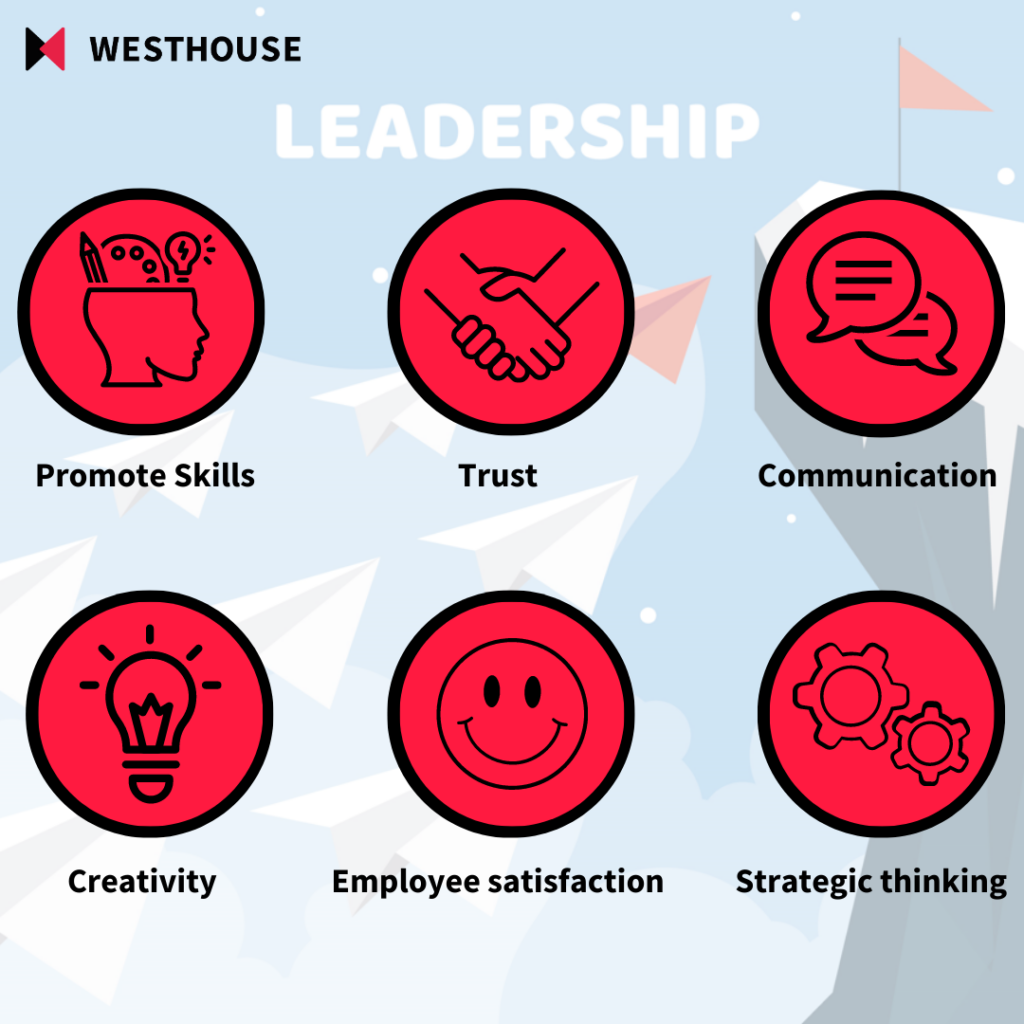Leadership is an essential part of any successful business. That is why it is so important and a complex and multifaceted concept. There are many different skills and abilities that are needed to be a successful leader.
Leadership has a great influence on the company’s image and employee satisfaction.
A study by Switzerland shows that around 62% of employees have already terminated their employment because of the manager. That is more than every second employee. This rate applies to almost all industries. Many employees agree that leadership often fails to communicate clearly, honestly and openly. Therefore, as a company, it is very important to have good leaders and to support them.
Here are the most important skills for leaders:
Communication
Communication is the most important skill for an effective leader to have. It is the foundation upon which a leader’s success is built. Effective communication requires a leader to be able to effectively listen and understand the needs and concerns of those they are managing.
Without clear and effective communication, it is impossible to lead a team to success. By communicating effectively, a leader can ensure that everyone in the team understands the direction and goals they are working towards. This allows everyone to work together in a unified way, rather than having different ideas and opinions that could lead to conflict and confusion. Effective communication also encourages collaboration. When everyone is clear on the task at hand and understands the goals that need to be achieved, they are more likely to work together to reach those goals. This encourages a sense of camaraderie and helps to build strong relationships within the team. Communication also has the power to inspire. A clear and inspiring message from a leader can motivate a team to work harder and to strive for excellence. Without this motivation, it can be difficult to keep morale high and ensure that everyone is doing their part.
recognize and support potential
It is important to recognize and support the potential of a employee. Acknowledging their skills, talents and capabilities can help to build an employee’s confidence and motivate them to continue to grow and develop. Showing appreciation for their efforts and successes can also help to nurture a positive working relationship. Taking the time to listen to their ideas and provide feedback can foster creativity and help them to reach their full potential. Additionally, offering opportunities to take on additional responsibilities, or to attend training sessions or seminars can show an employee that their growth and development is valued.
humanity / empathy
Anyone who wants to be successful as a manager needs not only the ability to communicate, but also a pronounced empathy. It is important that the manager knows his or her employees well in order to also be able to feel what the employees‘ needs are. As a manager, you know that the success of the company depends primarily on the employees and that these employees are not just a number on the roster, but people with demands and needs. Therefore, you must be able to connect with and value each employee.
So show interest in the people you talk to, for example at the lunch table. It is often enough to ask how his weekend was or how his children are doing. Or show appreciation for the presentation of one of your employees. After all, simple praise is often enough to establish closer contact with people.
Remember: praise and recognition are 2 of the most powerful motivators. First, giving is more important than receiving. You reap the harvest later. Besides, praise only costs your time.
Identify conflicts
Conflicts can arise in the workplace from time to time. It is important for managers to recognize conflicts at an early stage and take direct action, as well as to talk to employees about the situation. The worst thing you can do is ignore conflicts.
This is where the Kult method (a german Method) can be very helpful.
- Clarification – What is present?
Clarify with the participants at the beginning what the conflict consists of. In this way, you will get an overview of the topics and subjects of the conflict. For this purpose, have them describe the course of the conflict and inquire about the situation.
- Causes – What are the reasons for the conflict?
Now analyze the situation at hand and find out what the conflict or the bad mood can be traced back to. This cannot always be worked out in a joint discussion – therefore, if necessary, also conduct individual discussions with people who are not directly involved in the conflict in order to learn more about the reasons.
- Solution – How to settle the disagreement?
After you have found out about the nature, subject and reasons for the conflict, the next step is to resolve or ease the conflict. It is important to first clarify with the parties concerned what demands they are making on the behavior of the other party. Make sure to evaluate these afterwards in order to create a win-win situation for the parties involved.
- Transfer – How do you ensure the implementation of the solution?
It is important that the approaches to conflict prevention that have been developed are also implemented. Make sure that the conflict partners adhere to the agreements made in order to avoid renewed conflicts. Therefore, arrange a joint follow-up meeting to check whether the agreements have been kept or whether new conflicts have arisen.d.

Set clear goals
Employees are more motivated when they know the company’s goals and align them with their individual goals. It is important to set realistic, clear and appropriate goals. Goals should always align with the values of the company. It is also important to motivate employees through a lot of personal responsibility so they can achieve their goals as best as possible. It is important to track the goals and have regular conversations to discuss progress and reward progress.
